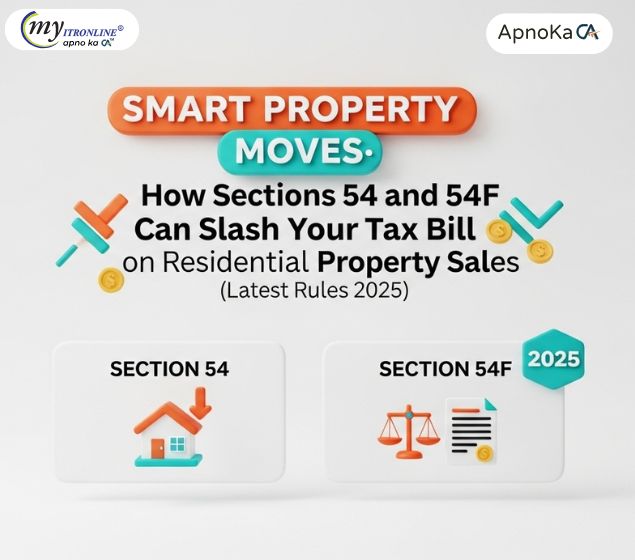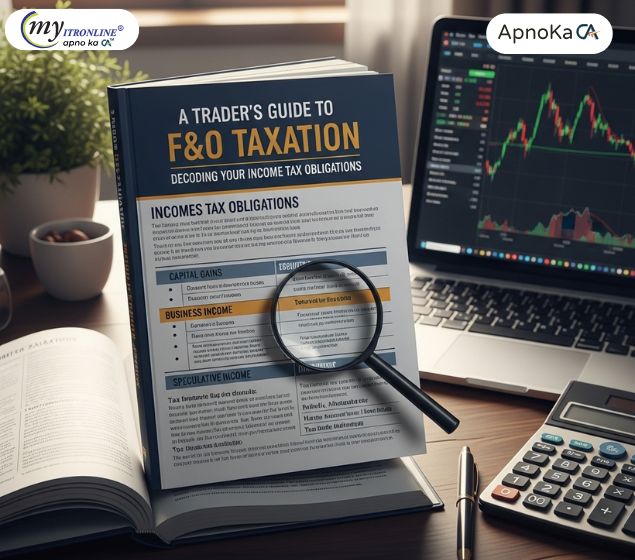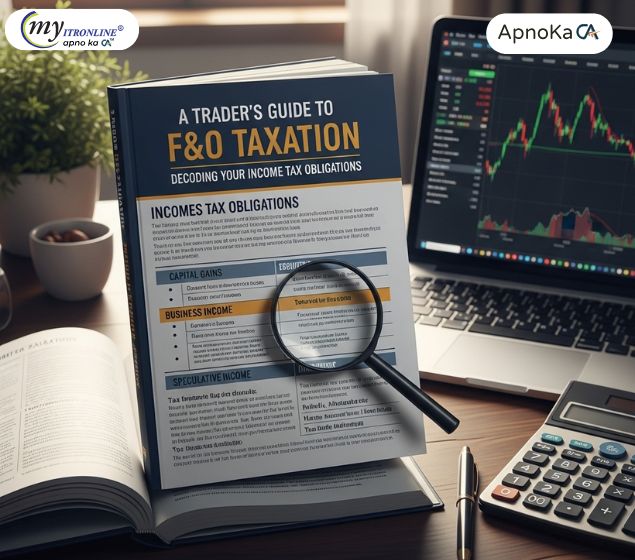# taxlaws
12 posts in `taxlaws` tag

Smart Property Moves: How Sections 54 and 54F Can Slash Your Tax Bill on Residential Property Sales (Latest Rules 2025)
Discover how Sections 54 and 54F of the Indian Income Tax Act provide crucial tax exemptions on Long-Term Capital Gains from property sales. This comprehensive guide covers the latest rules for 2025, including the new ₹10 Crore cap and the two-house option under Section 54, offering practical examples and a step-by-step plan for effective tax planning.

A Trader's Guide to F&O Taxation: Decoding Your Income Tax Obligations
This guide explains the crucial aspects of Futures & Options (F&O) taxation in India. It clarifies that F&O income is categorized as 'Non-Speculative Business Income', detailing how to calculate turnover based on 'absolute profit' plus premiums. The guide outlines various deductible expenses to reduce taxable income and explains when a tax audit is mandatory, especially for losses or specific turnover thresholds. Finally, it covers how to manage F&O losses through set-off and carry-forward, and provides essential information on ITR filing (ITR-3), applicable tax rates, and advance tax payments, ensuring traders stay compliant and manage their finances effectively.

A Trader's Guide to F&O Taxation: Decoding Your Income Tax Obligations
This guide explains the crucial aspects of Futures & Options (F&O) taxation in India. It clarifies that F&O income is categorized as 'Non-Speculative Business Income', detailing how to calculate turnover based on 'absolute profit' plus premiums. The guide outlines various deductible expenses to reduce taxable income and explains when a tax audit is mandatory, especially for losses or specific turnover thresholds. Finally, it covers how to manage F&O losses through set-off and carry-forward, and provides essential information on ITR filing (ITR-3), applicable tax rates, and advance tax payments, ensuring traders stay compliant and manage their finances effectively.
.jpg)
100% Penalty Alert: Complying with Cash Transaction Limits (269SS, 269T, 269ST)
This blog post provides a comprehensive yet easy-to-understand guide to Sections 269SS, 269T, and 269ST of the Indian Income Tax Act. It explains the rules regarding accepting and repaying cash loans/deposits (above ₹20,000) and receiving cash amounts (above ₹2 lakh) for various transactions. The post emphasizes the severe penalties (100% of the amount) for non-compliance, clarifies exemptions, and details how these transactions are reported in Form 3CD during a tax audit. It concludes with practical takeaways for taxpayers to ensure compliance and avoid issues.

12A Registration Made Easy: Latest Online Guidelines for Indian NGOs
For non-profit organizations, charitable trusts, and societies in India, securing 12A registration is vital for income tax exemption. With the Indian government's move towards digital governance, the 12A registration process has undergone significant updates. This blog post provides a detailed look at the latest guidelines, including mandatory online filing via Form 10A/10AB, the requirement for re-registration for existing entities, the new 5-year validity period, and essential steps to ensure a smooth, compliant experience for your organization.
.jpg)
CBDT’s New Form 49C Rules: Stricter Tax Compliance for Non-Residents in India
Stricter guidelines have been implemented by the Central Board of Direct Taxes (CBDT) for foreign nationals submitting Form 49C in India. Enhancing openness and guaranteeing adherence to tax regulations are the goals of these modifications. Important changes include more stringent penalties for non-compliance, obligatory digital filing, and expanded disclosure requirements. In order to prevent fines and operating delays, non-resident businesses are now required to keep proper records and follow more stringent filing deadlines.
.jpg)
A Complete Guide to Preventing Tax Notices for NRIs
can be difficult to manage income tax as an NRI, and even small mistakes could result in tax notifications. The top 5 tax notifications that non-resident Indians (NRIs) frequently receive are highlighted in this blog. These notices include non-filing of returns, income mismatches, unreported income, suspected tax evasion, and faulty returns. It offers helpful advice on how to prevent these letters, including timely filing, correct income declaration, making use of DTAA advantages, and speaking with tax experts. NRIs may guarantee hassle-free tax compliance and steer clear of fines by being proactive and knowledgeable.
.jpg)
Section 10(23FE Simplified: CBDT’s Notification 127/2024 Explained
By issuing Notification No. 127/2024, the Central Board of Direct Taxes (CBDT) has amended Section 10(23FE) of the Income-tax Act. The updated rules simplify compliance and increase the range of assets available to pension funds (PFs) and sovereign wealth funds (SWFs). In line with India's economic objectives, these adjustments are meant to draw in long-term investments in the social development and infrastructure sectors.

Leveraging Sections 54 and 54F for Tax Exemptions in Property Transactions
This blog explores Sections 54 and 54F of the Indian Income Tax Act and explains how they exempt individuals and HUFs from paying taxes on capital gains when they reinvest them in residential real estate. To ensure clarity for taxpayers, the essay also discusses frequent disagreements, court rulings, and helpful advice for claiming exemptions.
Understanding Section 139(5) of the Income Tax Act: A Comprehensive Guide
A thorough explanation of Section 139(5) of the Income Tax Act can be found in this blog post. It describes what a defective return is, how to fix a defective return, and the possible repercussions of filing a defective return. Taxpayers can guarantee compliance with income tax legislation and prevent penalties by being aware of Section 139(5).
Understanding Section 50C of the Income Tax Act: Capital Gains on Real Estate Sales
Property sellers are prohibited by Section 50C of the Income Tax Act from undervaluing real estate transactions in order to avoid paying taxes. If the stamp duty value is more than the real consideration, this clause treats it as the considered selling price. This blog offers a thorough explanation of Section 50C's operation, as well as its consequences for capital gains, exemptions, dispute settlement procedures, and the safe harbor limits that have been included in more recent modifications.
.png)
Form 1 of DTVSV 2024: Online Filing, Deadlines, and Penalties
Form 1 for the Declaration of Taxable Value of Securities (DTVSV) 2024 is now available for online submission. By October 31, 2024, taxpayers who own securities as of March 31, 2024, must submit this form. Up to December 31, 2024, a late return may be submitted; however, there will be a ₹1,000 penalty. In the event that the form is not submitted by the stipulated deadline, there will be a penalty of ₹10,000 and potential interest on unpaid taxes. Find out how to easily file Form 1 online and make sure you're following the DTVSV rules.
